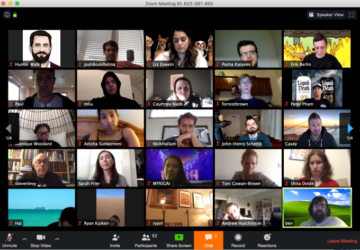 Softcat has a new “high-level” hybrid working policy.
Softcat has a new “high-level” hybrid working policy.
CEO Graeme Watt said there was a need to strike a balance between flexible and remote working and retaining a strong, and energetic culture.
Softcat implemented a new hybrid working policy from 1 November, Watt said, stressing that it is”as high level as possible” and emphasises flexibility over rigidity, with staff trusted “to make a good judgement”.
“It’s a hybrid working policy that we put in place with a slight bias to the office”, Watt said.
“You could interpret that as 2.6 days a week. Most people interpret it as three days a week. There is a slight bias to the office because we can’t afford to lose the energy, the engagement, the commitment, the soft and hard learning and the agility that you get from being in the office.
“We’re happy for people to have the best of both worlds, without any degradation to the way we operate as a business. And it’s been great. I’m in the London office today and there are people everywhere. It’s not quite the same numbers as we had pre-pandemic, but it’s the biggest numbers we’ve had in 18 months or more, and I think everybody is seeing the benefit of that.”



















